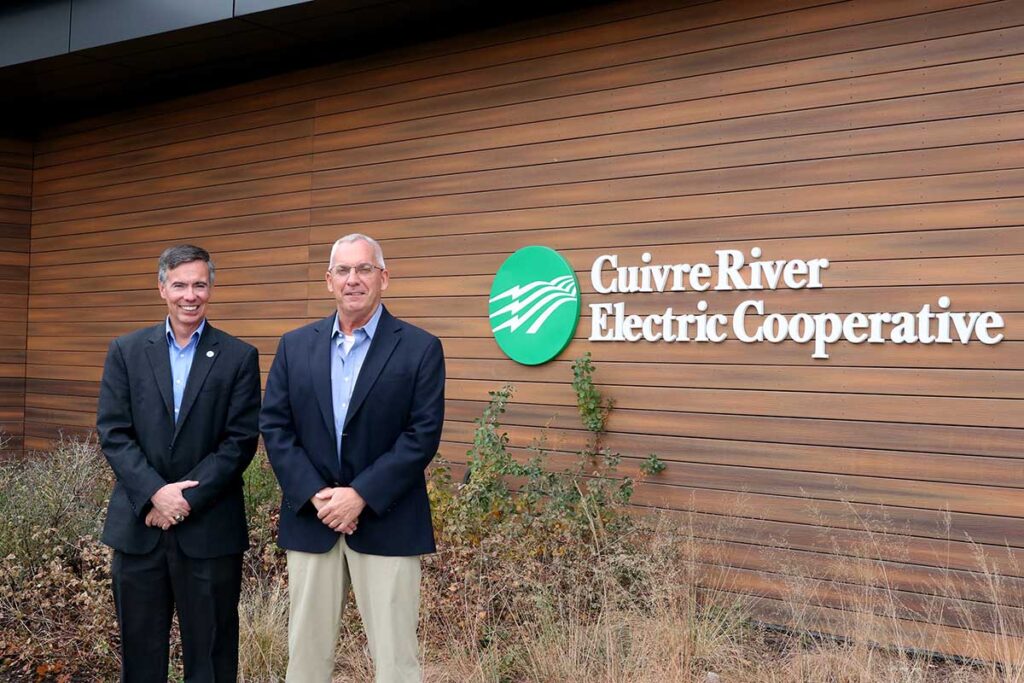
When Missouri’s Cuivre River Electric Cooperative threw its hat into the ring to serve an $800 million meatpacking plant with an estimated annual economic impact of $1 billion, it faced stiff competition.
Also vying for the chance to serve American Heartland Packing, a state-of-the-art 775,000-square-foot facility with the potential to provide more than 1,300 jobs, was an investor-owned utility based in St. Louis, Missouri.
“Nobody had ever beaten an IOU in Missouri for such a large load competing against an investor-owned utility,” said Doug Tracy, president/CEO of the Troy-based co-op, of the bidding campaign that began in June 2021.
But the co-op got the job. In July 2022, AFG selected Cuivre River EC to serve its subsidiary, American Heartland Packing, both during the current construction phase and when it becomes fully operational in January 2025. The facility will be three times larger than the co-op’s largest commercial load (a 14-megawatt natural gas pipeline) and will be one of the largest served by generation and transmission co-op Associated Electric Cooperative in Springfield.
The co-op’s “Triple R” approach of rates, reliability and relationships prevailed, said Cuivre River EC officials, despite the IOU’s deeper pockets and ability to offer discounts to potential commercial customers through Missouri’s Public Service Commission.
“Our rates are comparable, but that’s one thing that co-ops in Missouri have to go up against,” Tracy said. “Our rates are pretty competitive, but IOUs can offer these economic incentive rates to get large loads.”
The co-op’s small size proved to be an advantage. “When we started the process, I gave my board a basketball analogy,” Tracy said. “When you’re up against a team that’s really tall and really big, the way you beat that is through speed. You do things they can’t do.”
For example, when developers requested temporary electric service at the site, Cuivre River EC jumped into action to build a substation and a 61-kilovolt transmission line to serve the project before the company’s deadline.
“It was almost like a challenge, and they wanted to see what we were capable of,” said Keith Stone, Cuivre River EC’s vice president of economic development and corporate services. “There was a substation a quarter of a mile near the property, but we thought ‘What could be more reliable than a substation right next door?’”
And as for the final “R,” the co-op “hit the relationship and service side of things really, really hard,” Tracy said. “We don’t care about stock price, but we do care about service and treating members right. We talked about how our lobbies are open and our 24/7 key accounts program where you get a personal representative.”
During the bidding process, Stone said, the co-op and the plant’s owner, American Foods Group, a family-run company based in Green Bay, Wisconsin, discovered their work and community cultures “went hand in hand.”
“We talked about how we work out here, our kids go to school out here, and we go to church here,” Tracy said. “We’ve been involved with the community forever. The cooperative model will sell itself if we just tell the story.”
Victoria A. Rocha is a staff writer for NRECA.